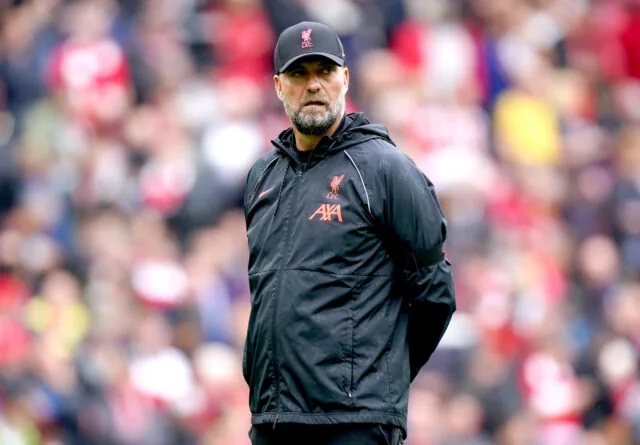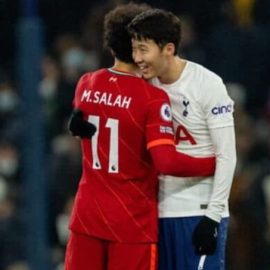Despite the modernisation of the game and the soaring cost of attending, football is crawling with traditionalists. And why wouldn’t it be? We’re followers of a sport which can proudly trace its roots from a new Victorian era of leisure, through wartime stories of football in the face of adversity, to an age in which the game is a dominant cultural behemoth the world over.
We have plenty upon which to look back fondly. We can remember local kids asking if they could mind our cars before we walked down the street as part of a cast of thousands towards our footballing church of choice. We remember taking in the aroma of dodgy meat and frying onions as we trudged onto concrete terraces to be pushed, shoved and pulled all over by the surging congregation. The whole experience felt, sounded and smelled like football.
Those a little older still will remember the days of players travelling to matches by public transport and joining supporters in the pub for a celebratory drink or ten. In short, plenty of football’s history is worth being nostalgic about.
Things are a little different now. English football is maturing from the endearingly frustrating teenager into a polished, flash businessman. New ‘markets’ are being brought on board, seemingly at the expense — literally — of Wolfie (every club had one, let’s face it) and the old bloke with the Bovril and the flat cap. There’s just one question to ask: how far can we be stretched before there is a backlash?
Since the introduction of the Premier League, the game has appeared desperate to shed the loyal fans of yesterday and replace them with the corporate and tourist support becoming more and more prominent today. Clearly it isn’t a conscious strategy, but the effect of several and varying methods of fan alienation remains the same.
Ticket pricing has become a white-hot issue in the world of Premier League fandom, but it’s not simply a case of supporters being priced out and replaced with corporate guests. As well as the increasing cost of watching football, those that can afford to do so pay extortionate amounts of money to follow 22 men to whom we can relate less and less as the seasons go by. Premier League ticket prices reportedly increased by 7.2 percent from last season to this, more than twice the rate of inflation. Research by the BBC in May found that “the average cost of a mid-priced season ticket has risen to £590”.
Away ticket prices have caused controversy too. Aston Villa and Birmingham City fought a cold war over pricing last season. Queens Park Rangers and Derby County did the same this term, albeit in the Championship. There’s really not much we can do about it, but fans of Manchester United — backed by the Manchester United Supporters’ Trust — protested against paying £45 for a trip to Craven Cottage by boycotting all spending opportunities once inside.
United have also hit the headlines over the past two seasons for their cup ticket scheme, which saw season ticket holders forced to pay for cup tickets at Old Trafford regardless of whether they wanted them or not. Other cup schemes in the Premier League vary in terms of popularity and value, but United’s version is the perfect example of one which is intended not to aid fans in keeping their seats for cup games, but to rip them off.
Supporters are also becoming alienated as a result of actions which also impacted on clubs. Perhaps that helps explain why we pay so much, but the greed of players is more likely a cause.
The Taylor Report eventually led to the removal of terracing from Premier League football grounds in the years following Hillsborough. Though something had to be done, many fans felt that the reaction was inappropriate and reached without the proper consultation. With more effective policing of football, and safe terracing in use in the Bundesliga, the time has come for an open and free debate on terracing in England’s top flight.
Don Foster MP, Shadow Secretary of State for Culture, Media & Sport, Culture, Media & Sport for the Liberal Democrats, agrees:
“It was politicians who — rightly at the time — insisted on all-seater stadia for top flight games. But we now have the problem of fans standing — unsafely — on seats despite new technology that provides safe-standing areas. So politicians should look again at this issue. If they can do it in Germany, then why can’t we?”
Further erosion of tradition has taken the form of the demise of the 3pm Saturday kick off. The television companies who bankroll the League are afforded too much authority over kick off times, leading — with a little help from competition changes made by UEFA — to Premier League matches taking place on Saturday, Sunday, Monday, Tuesday, Wednesday and, in one disturbing case, Thursday. It’s not much, but it adds up. Football’s a different game for those of us (un)fortunate enough to follow top flight clubs.
Fans are also becoming frustrated with the number of unsavoury characters running roughshod over our clubs. An influx of foreign big-money owners has taken the elbow-grease shine off the game. The bad are just bad. Mike Ashley and Thaksin Shinawatra helped to bring shame and ridicule upon their clubs with a mixture of media whoreishness and lack of knowledge. Thaksin’s buyers, Abu Dhabi United, epitomise another concern: Rich Man’s Plaything Syndrome. Manchester City’s new owners, along with Roman Abramovich at Chelsea, are destined to make the game little more than ‘my phallic yacht is bigger than your phallic yacht’.
While we’re on the subject of the filthy lucre, it’s worth noting that the players are becoming obsessed with money too. They increasingly speak openly about their ambitions with little consideration for respect or tact. The very idea that a player could talk himself into a transfer leaves a sour taste. Last summer’s comments by Cristiano Ronaldo and Gareth Barry hit the headlines, and demonstrated the trend for blatantly shunning loyalty. More recently, Roque Santa Cruz began shooting his mouth offabout a move to Manchester City. Were I a Blackburn Rovers supporter, I’d not be happy.
But undoubtedly the most unpleasant kick to the teeth of the fans is the ludicrous debacle over Game 39, the catch-all name for various levels of proposals, backtracking and re-proposals for Premier League matches abroad. Richard Scudamore and the Premier League have made it clear that they care not for the views of the fans. Something will eventually happen which makes the Premier League and its clubs a tidy sum each year. Whether the intention for it to count towards the league campaign was engineered deliberately to seem awful enough to make subsequent backtracking seem like a compromise remains to be seen.
Game 39 provoked anger among fans, but it’s obvious that Scudamore would have progressed had various football bodies not admirably voiced their opposition. The contempt in which we are held is sickening. But will there come a time when we say enough is enough?
The future for football supporters is constantly at one set of crossroads or another. The removal of terraces raised questions, as did the first million pound player, the introduction of the Premier League and the smoking ban. But the fact is, as long as there is gold to chase, we’re only going to be further alienated by the game we love.
Do we go with the flow and sit alongside the prawn sandwich brigade in silent grounds? Do we run away to the lower leagues, or even to non-league? Or do we pack it in altogether and take up knitting (it’s the new rock and roll, so my girlfriend tells me)?
The sad truth is that there is nothing we can do to stop the juggernaut. We’ll just have to compromise, or jump off. I know which one I’ll one day be doing.
Christopher Nee writes at Two Footed Tackle.
This article is a submission for the Soccerlens 2008 Writing Competition; to participate, please read the details here. The competition is sponsored by Subside Sports (premier online store for football shirts) and Icons (official signed football jerseys).
Add Sportslens to your Google News Feed!






